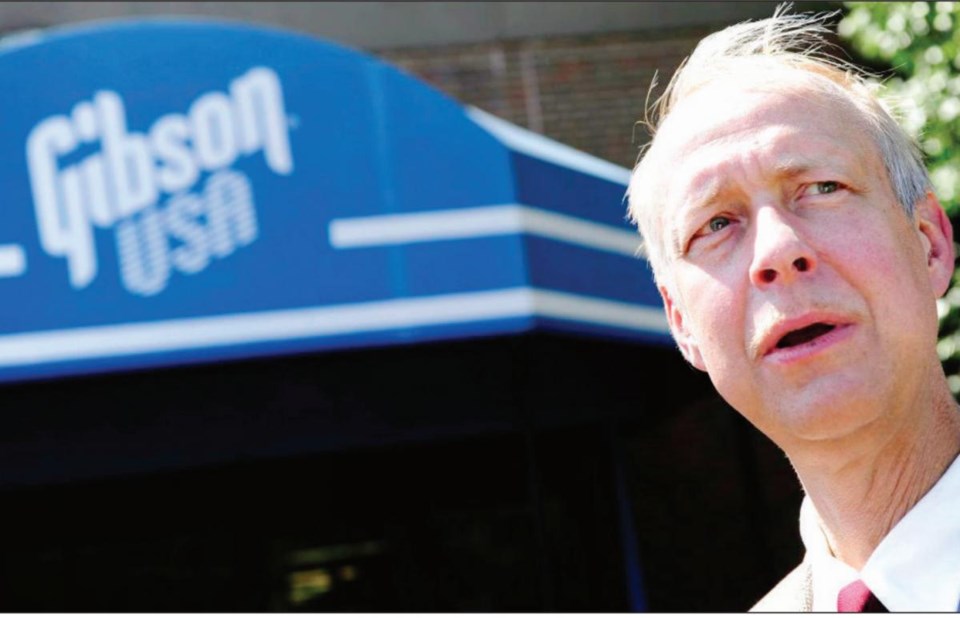Federal prosecutors have announced a deal to drop a criminal case against Gibson Guitar Corp. after the instrument maker acknowledged its importations of exotic wood violated environmental laws.
Nashville-based Gibson agreed to pay a $300,000 penalty, forfeit claims to about $262,000 worth of wood seized by federal agents and contribute $50,000 to the National Fish and Wildlife Foundation to promote the conservation of protected tree species.
"The agreement is fair and just in that it assesses serious penalties for Gibson's behaviour while allowing Gibson to continue to focus on the business of making guitars," U.S. Attorney Jerry Martin said in a statement.
The privately held company is considered one of the top makers of acoustic and electric guitars, including the iconic Les Paul introduced in 1952.
"We felt compelled to settle as the costs of proving our case at trial would have cost millions of dollars and taken a very long time to resolve," CEO Henry Juszkiewicz said in a statement.
"This allows us to get back to the business of making guitars," he said, noting that the settlement would allow them to continue sourcing rosewood and ebony from India as it has for decades.
Gibson's decision to cooperate with the federal Lacey Act banning the import of endangered wood products stood in contrast to a publicity campaign mounted in protest after agents raided Gibson facilities in Memphis and Nashville.
Republicans and tea party members had rallied behind Juszkiewicz at the time he denounced the raids as overzealous federal regulation that threatened American jobs. He reiterated the criticism late Monday.
"We feel that Gibson was inappropriately targeted, and a matter that could have been addressed with a simple contact by a caring human being representing the government," he said in his statement.
"Instead, the government used violent and hostile means with the full force of the U.S. government and several armed law enforcement agencies costing the tax payer millions of dollars and putting a job creating U.S. manufacture at risk and at a competitive disadvantage.
A few weeks after the raids, a company spokesman said that a federal agent had "lied" in affidavits claiming the CEO knew the wood seized by authorities was illegally imported.
Those affidavits supporting the search warrant that authorized the raids alleged that shipments of imported Indian ebony and rosewood were given false labels to circumvent import restrictions.
The settlement says a Gibson employee learned during a 2008 trip to Madagascar - the source of some of the ebony wood that was seized - that it was illegal to import unfinished wood and sent a report about it to his superiors, including company president David Berryman.
The exotic woods used in such guitars are considered integral to the sound. And artists who have played Gibson instruments range widely from Chet Atkins and Maybelle Carter in country to Pete Townshend of The Who and Eric Clapton in rock to Larry Carlton and Paul in jazz.
George Gruhn, who owns a vintage guitar shop in Nashville, said he wasn't surprised that Gibson officials accepted the settlement.
"Regardless of the merits of the case on either side, it would have cost more than that by far to pursue it," he said. "Even if they thought they conceivably they could win, it would have probably cost more than $1 million to do it."



